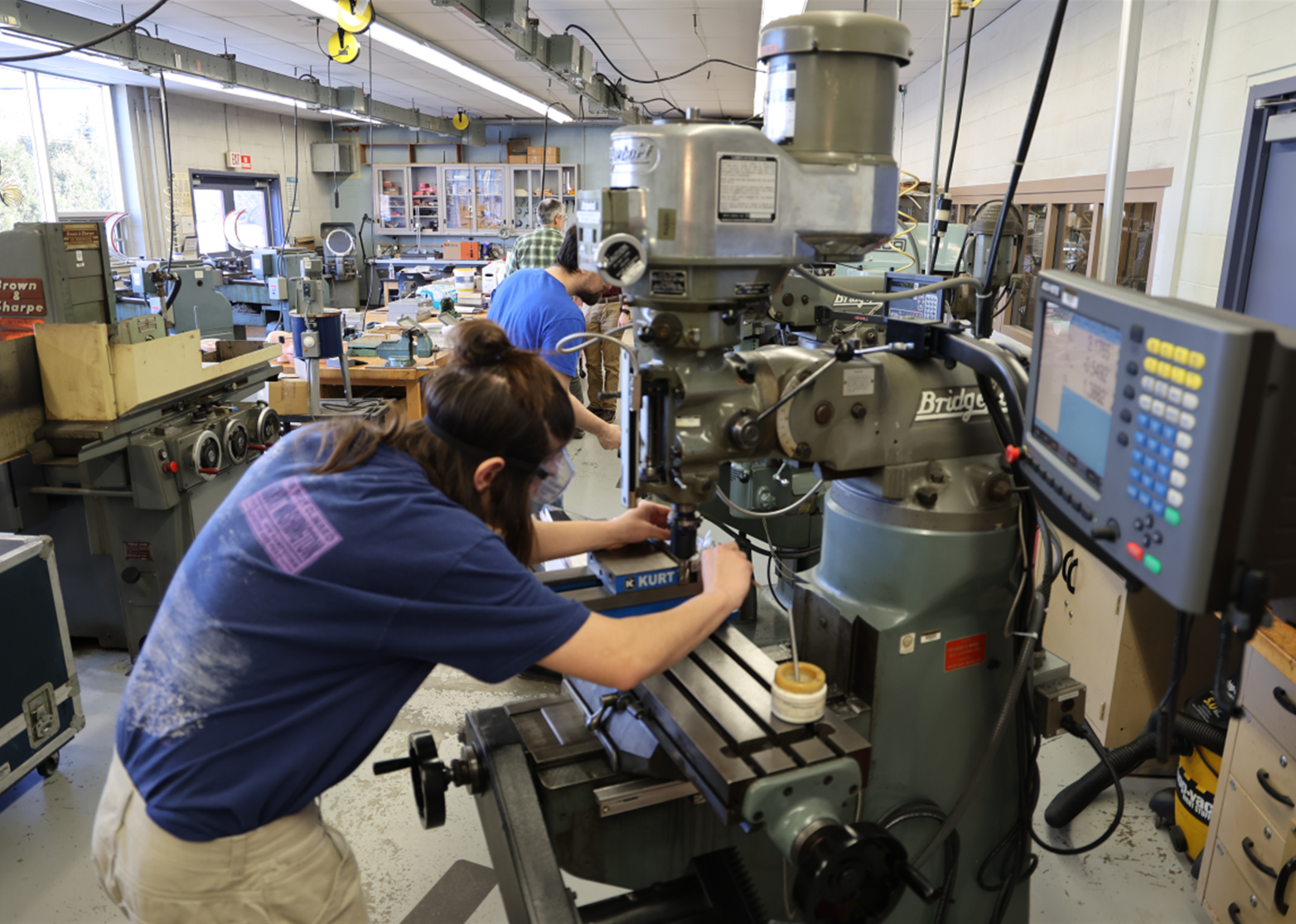
NHTI's Mechanical Engineering Technology degree program educates you in the mechanical engineering field and includes courses in the areas of design, manufacturing, and controls. Math and physical sciences are emphasized to give you the basic knowledge to cope with changing technology. Course work incorporates theory and practice with extensive computer applications including computer-aided drawing/modeling and design.
Do you have questions? Contact Jeff Beltramo, program coordinator, at jbeltramo@ccsnh.edu. The department chair for this program is Dan Shagena, who can be reached at dshagena@ccsnh.edu.
Apply for this program today on our Admissions page with step-by-step instructions and enrollment pathways build just for you!
Applicants are required to have:
- Three years of college preparatory math (Algebra I, Algebra II, and Geometry) with minimum grades of C
- It is recommended all applicants have satisfactorily completed high school-level Chemistry and Physics.
Students who complete this program can enter into the following professions (not an inclusive list): assistant engineer, machine designer, engineering sales representative, engineering laboratory technician, technical supervisor, and CAD operator.
First Year
Fall Semester
Spring Semester
Second Year
Fall Semester
Spring Semester
Accreditation
This program is accredited by the Engineering Technology Accreditation Commission of ABET, www.abet.org.
Program Learning Outcomes
Graduates are able to:
- Apply knowledge, techniques, skills, and modern tools of math, science, engineering, and technology to solve engineering problems.
- Design solutions for technical problems and assist with the engineering design of systems, components, and processes.
- Apply written, oral, and graphical communication and identify and use appropriate technical literature.
- Conduct standard tests, measurements, and experiments, and analyze and interpret the results.
- Function effectively as a member of a technical team.
Program Educational Objectives
- Prepare graduates for professional entry-level positions to meet the demands of industry.
- Prepare graduates with the skills to enter a four-year degree program.
- Prepare graduates to be life-long learners to meet the technical needs of an ever-changing society.
- Prepare graduates to effectively communicate in a diverse world with respect to social and ethical issues.

